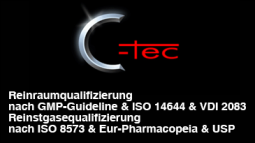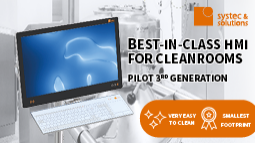KCP: Highest levels of flexibility
Ideal for developing new packaging materials and process technologies
The latest developments by Bausch+Ströbel in the field of space-saving equipment offering highest levels of flexibility in small-batch production are precisely targeted at market needs – as evidenced not only by the positive feedback from pharmaceutical companies and manufacturers of packaging materials but also by an award the southern German company received for its KCP filling and closing machine in the “Interphex Efficiency Champion” category at the Interphex trade show (International Pharmaceutical Expo) in the US.
The KCP owes its flexibility not only to the robots which allow containers to be transported in any direction required. The machine has also been designed for up to four workstations that can be arranged in flexible configurations and easily interchanged by the operators. The KCP is capable of processing virtually any type of standard containers, such as vials, syringes or cartridges, with a minimum of changeover time. A wide variety of processing steps, such as crimping, inspection, etc., can be integrated into the work sequence.
As the machine employs the same control and filling technologies as high-speed machines, developed processes can easily be scaled up to large production lines. This makes the KCP a particularly attractive investment for the development of new packaging materials and process technologies. West Pharma (Exton, Pennsylvania, US), a packaging material manufacturer, is currently cooperating with Bausch+Ströbel to greatly expand the range of applications in this specific field.
Erik Anderson, Principal Product Development Engineer at West Pharmaceutical Services, is very pleased with what has been achieved so far:
“To characterize the performance of all fill finish process variations as well as all closures, seals, vials, cartridges and syringes (commercial and prototype) requires the use of an extremely robust, innovative, and flexible filling platform. After much scrutiny via a West user requirements matrix vetted against a wide range of well-established OEMs, this project was ultimately awarded to Bausch+Stroebel because of their ability to meet the majority of user requirements, innovative culture, track record of proven performance, and technical competency.
Since project inception, multiple challenges have been overcome, processing capabilities have increased, and new applications for the use of this custom filling platform have been identified. Some of these applications include performance characterization of containers and closures, machinability performance evaluations, and testing of novel fill finish process improvements. West is very pleased with the progress to date with Bausch + Stroebel and is looking forward to continued success.”
How exactly does the machine work?
One example of a possible application is vial filling: here, the machine is set up with a filling station, a stopper insertion station and a closing station for crimp caps; in addition, it has an IPC scale.
The vials are conveyed to the individual workstations by two cleanroom robots which can transport up to four containers at the same time. It is possible to process not only individual containers but also containers in nests.
The machine is capable of in-process control (either 100 percent or at regular intervals). Faulty containers are automatically discharged as rejects. In this configuration, the KCP processes up to 1,000 containers per hour.
This is just one example from a wide range of features and configurations. Customers can choose from various dosing systems for liquid or powder products and from a number of closing units.
Stable containers can be loaded into trays after processing, if required.
The choice of alternatives is very wide. The conversion to a different container size or other dosing method takes very little time. As for cleaning, here too the KCP is uncomplicated: the machine structure permits easy but thorough cleaning and the work area including the robots can be decontaminated with H2O2. Another special feature of the B+S machine design: the robot arms are never above the container but always below it, thereby ensuring an optimal laminar air flow.
With the KCP, Bausch+Ströbel can supply an extremely flexible filling and closing machine for small batches which shows a high performance (the model described above can process up to 1,000 containers per hour) and at the same time can be converted easily and is therefore soon ready for highly variable production processes.
Bausch + Ströbel Maschinenfabrik Ilshofen GmbH+Co. KG
74532 Ilshofen
Germany











